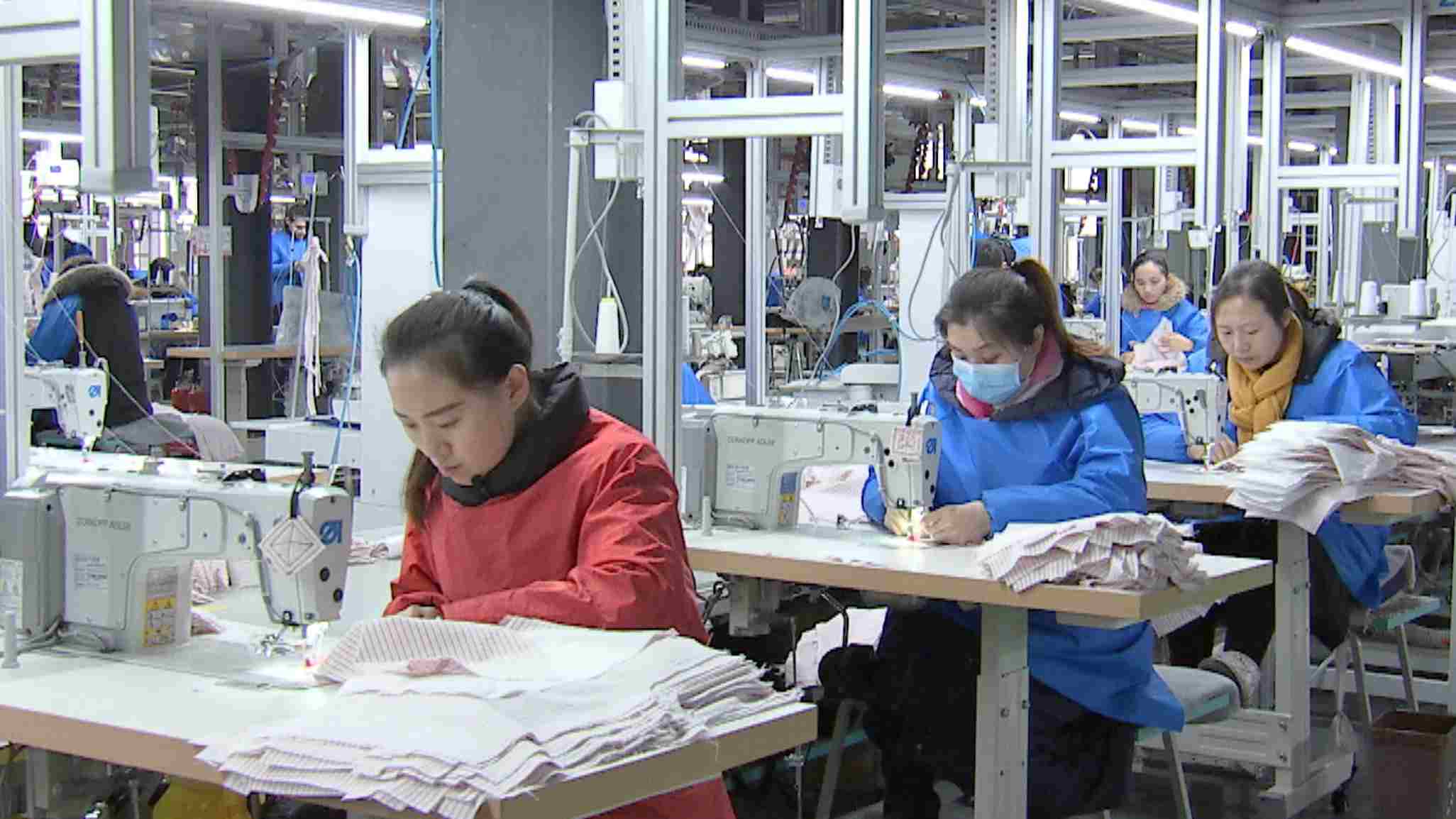
Money Stories
15:01, 28-Jan-2019
China to experience labor shortages during Lunar New Year
Updated
20:16, 28-Jan-2019
By Li Jianhua
02:03

Every Chinese New Year holiday season means a sudden labor shortage across the country. This year is no different. As workers leave for their hometowns, the shortage particularly affects China's manufacturing industry.
Case-in-point is a factory in the central Chinese city of Anyang, which makes clothes for many world-renowned brands. Workers there are leaving for the national holiday.
"We are eager to go home at the end of the year, and some of us have taken our annual leave. Now we have fewer hands here, which means we have a higher workload. Everyone is busy. We all want to finish our work and go home to celebrate the new year," said Du Xiuying who works at Dishang Huaying, a clothes manufacturing company.
The factory – with its headquarters based in east China's Shandong Province – was set up in central China's Henan Province in 2018, as Henan is one of the most populous provinces in China. Nevertheless, hiring does not go as smoothly as expected.
The factory currently houses about 600 workers, which still falls short of the 2,000 necessary to make sure the factory can run at full capacity, and the manager attributes this to people's changing attitudes towards life.
"This job is quite tiring. When you can do other things to make quick money, you might not want to get into an industry like clothes making," said Ju Xiaolong, manager of the Dishang Huaying factory.
China's labor shortages during Lunar New Year
Rural workers migrating to urban manufacturing regions have been the chief source of labor – and mostly in labor-intensive sectors.
The number of rural migrant workers surpassed 280 million as of 2017, which witnessed an increase of 1.7 percent from last year, according to the National Bureau of Statistics of China (NBS). And 50.5 percent of them are born after the 1980s.
Chinese official figures show the number of migrant workers in the sectors of manufacturing and construction dropped by 29.9 percent and 0.6 percent respectively. And those devoted to the tertiary industry rose by 48 percent from last year.
Statistics released by the National Health Commission of China indicate the number of rural migrant workers in China dropped by 2.53 million from 2015 to 2017, with 70 percent of them saying they will not return to their city jobs any longer.
"When a company's performance decreases – because of China's slowing economy – the pay from the company would go down accordingly. Employees feel slighted by the pay, which makes turnaround pretty high," said Ma Jinsong, vice director of the Anyang Labor Security Service Center.
Ma added that the Chinese government is pushing companies to take care of their employees' social insurance, which puts more burden on small companies.
An increasing number of rural workers are refraining from seeking jobs in cities for various reasons. Workers from the countryside usually can not get access to equal rights as their urban counterparts do, such as in medical insurance and children's education.
In addition, the Chinese government's measures to eradicate poverty by 2020 are partially contributing to labor shortages in cities, as many jobs are being created in rural areas to boost employment in the countryside.

SITEMAP
Copyright © 2018 CGTN. Beijing ICP prepared NO.16065310-3
Copyright © 2018 CGTN. Beijing ICP prepared NO.16065310-3